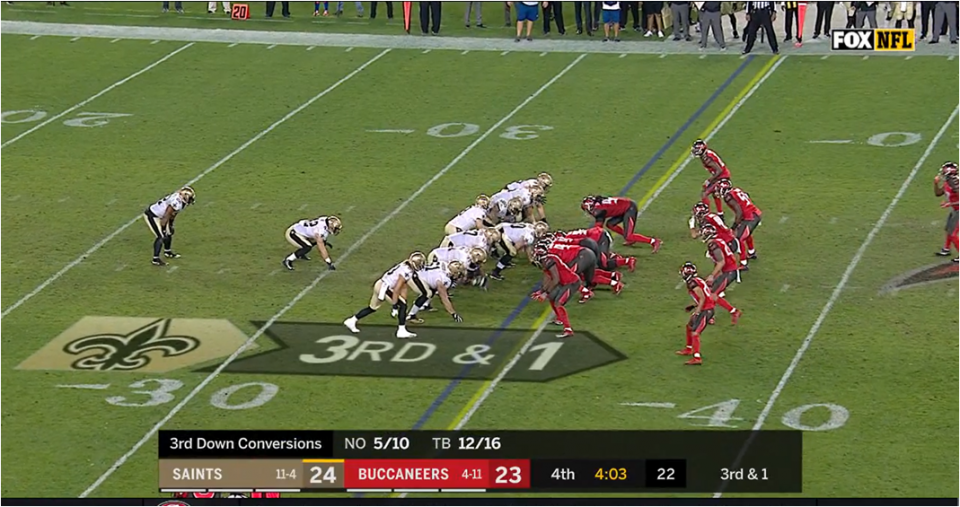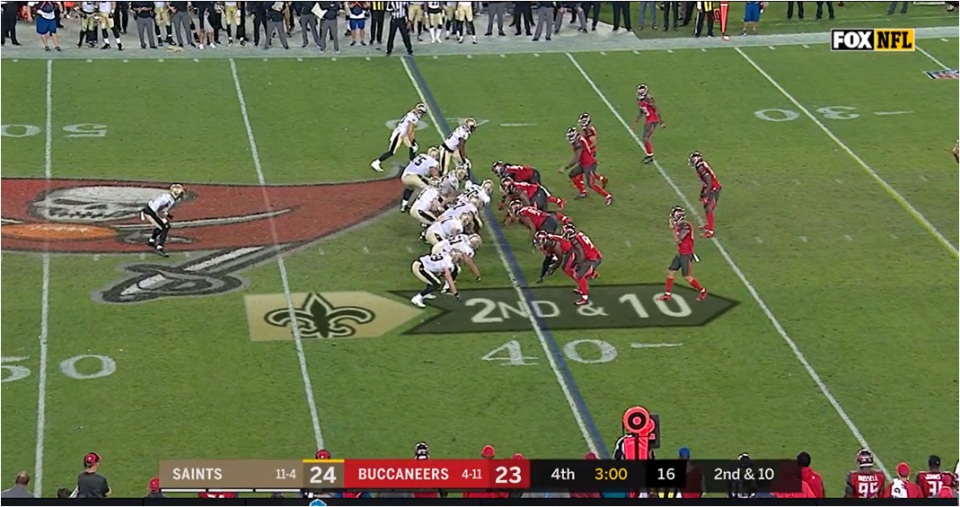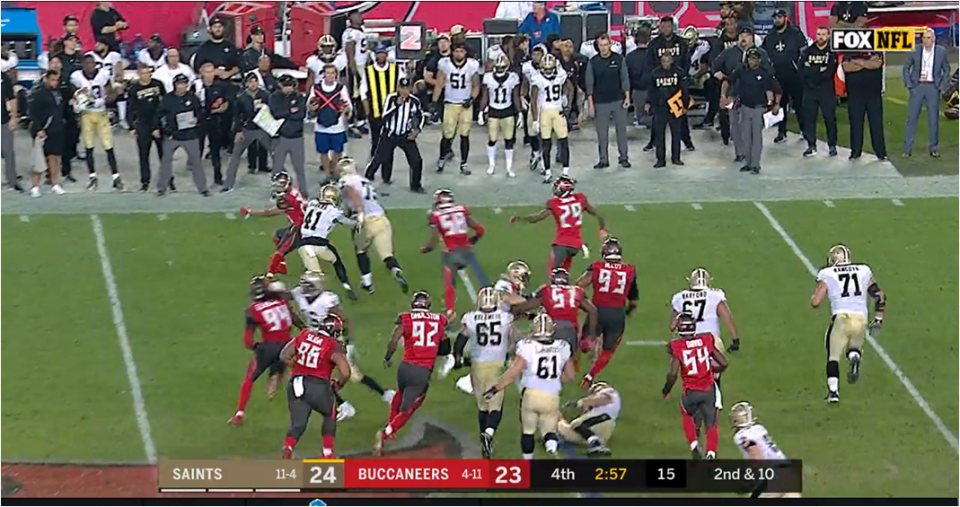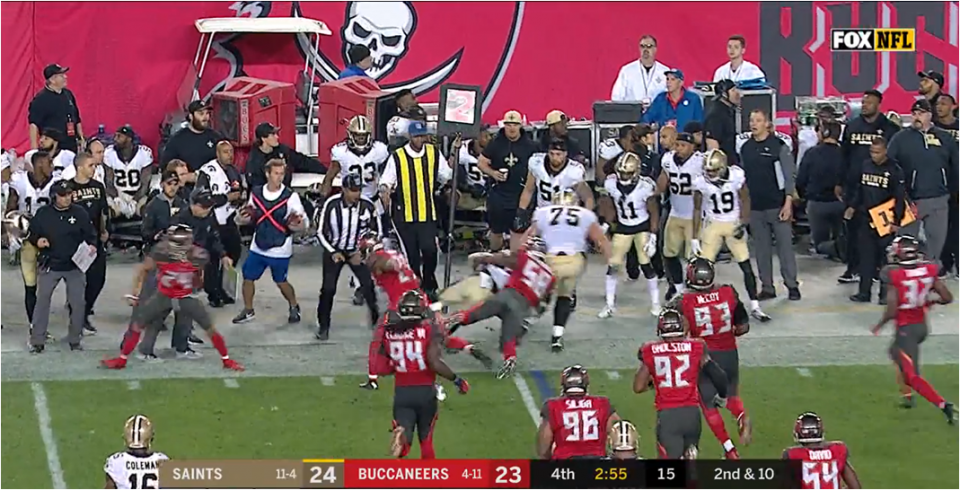From the Coach’s Office: Saints failure in 4-minute offense at Tampa
The New Orleans Saints loss at Tampa Bay was particularly disturbing to be because it was entire avoidable. It was a giant fail for the entire team – coaching staff and players – and is not typical of a championship team. The outcome of the game was fully in the New Orleans Saints control.
Four-minute offense is utilized at the end of the game when you are trying to run out the clock to win the game. While not as well-known as two-minute offense, it is every bit as valuable. It is a part of the game that needs to be well planned and rehearsed.
In cases like this I go to my resources. Bill Walsh in his famous treatise on Finding the Winning Edge covered this in detail.
There are four basic objectives:
1. Moving the ball on the ground
2. Making first downs
3. Keeping the clock running
4. Protecting the football
I am going to add these thoughts:
1. Throw using run actions on early downs when you are facing run pressure.
2. An incomplete pass or going out of bounds is unacceptable.
3. The quarterback should run the ball if the play is not there.
4. A sack is better than an incomplete pass
5. You are usually better staying inbounds instead of fighting for extra yardage.
There is no excuse for a fail in four-minute situations. They are entirely predictable and easily planned for. It is one time in the game when injuries and talent are not a factor.
The four-minute offense began with 4:31 on the game clock with New Orleans leading 24-23.
There were two plays in the final drive that game the Buccaneers enough time to win the game. Remember, Tampa Bay snapped their final play with 15 seconds to go in the game.
(4:03) M.Ingram right guard to NO 37 for 3 yards (R.Bullough).

The clock was stopped after the second down play for an injury to Tampa Bay linebacker Kwon Alexander. Once the ball was marked ready for play the clock resumed running with 33 seconds on the play clock. The Saints lined up quickly to run their short yardage power run with 4:03 left on the game clock and 22 seconds left on the play clock. While successful, NO had 22 seconds that they could have expended.
That gave the Bucs an extra 22 seconds.
Timeout #1 by TB at 03:15.
(2:59) A.Kamara left end pushed ob at TB 40 for no gain (K.Alexander).

Here is the point that Alvin Kamara had to make a decision. You can see him starting to lean toward the sideline making is easy for the Buc defenders to knock him out-of-bounds. It would have been better at this point to just fall down.

Kamara is easily knocked out-of-bounds by Kwon Alexander.

The play only took only 5 seconds and the clock was now stopped with 2:54 remaining in the game. The Bucs had no time outs left at this point.
Going out of bounds cost the Saints 40 seconds.
After failing on third down, the fourth down punt was now before the two-minute warning. By wasting 22 seconds earlier the third down play and the punt both occurred before the two-minute warning.
Those two plays gave the Bucs 62 seconds that they did not deserve. On the next play, Drew Brees also made an error but was bailed out by the official declaring him sacked instead of an incomplete pass at the mark. A sack was far preferable at that time.
In the past, Sean Payton has been hugely effective in winning games with long drives at the end of the game. I am hoping that the Saints will learn from this fail and that they are in position to utilize their 4-minute offense in the playoffs.
- < PREV Soccer: Ben Franklin girls roll past Country Day
- NEXT > McNeese announces 2018 football schedule
Rick Gaille
CCS/WGSO Analyst
Rick Gaille was involved in athletics his entire life, first in the arena as a competitor, later on the sidelines as a coach and later analyzing sports for Crescent City Sports and WGSO. As a competitor in golf, Rick was LSUNO’s first athlete, first 1st team All-American (1970) and first three-time All-American (1970, 1971 and 1972). During those years, (LS)UNO…




